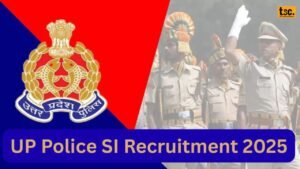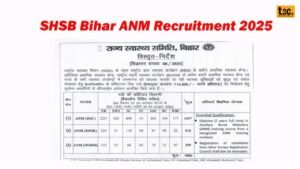July 2025 Current Affairs: Top 25 Events Shaping India and the World

July 2025 current affairs events in India and globally
July 2025 current affairs brought transformative events shaping India and the world. From the 17th BRICS Summit to the India-UK FTA, these 25 developments are critical for UPSC aspirants and curious readers alike. This blog offers insights into policies like the National Sports Policy 2025 and global partnerships, blending storytelling with facts. Whether you’re preparing for exams or staying informed, dive into these updates to understand their impact. With India’s growing global influence, July 2025 marks a pivotal moment.
17th BRICS Summit

Global Impact: The 17th BRICS Summit, held in Rio de Janeiro on July 6-7, 2025, marked a pivotal moment for global governance.
Key Outcomes: The summit pushed for UNSC expansion, adopted a Climate Finance Framework, and launched the BRICS Space Council. PM Modi’s suggestions on AI for All and supply chain resilience resonated widely.
Why It Matters: With BRICS+ now representing 37.3% of global GDP, its influence challenges the G7, offering India a platform to amplify its voice.
Challenges: India-China tensions and power imbalances within BRICS remain hurdles.
Exam Tip: Focus on the distinction between games of skill and chance, and federalism issues for UPSC polity questions. Explore our Current Affairs for more.
India-UK Free Trade Agreement
Historic Deal: Signed in July 2025, the India-UK FTA is the UK’s biggest post-Brexit trade pact.
Key Features: Duty-free access for 45% of India’s exports, tariff cuts on UK cars, and enhanced services sector access.
Impact: Boosts India’s textile and auto exports while opening UK procurement contracts for Indian firms.
Concerns: Domestic auto industries may face pressure from cheaper UK imports.
Vice-President Resignation

Unprecedented Move: Vice-President Jagdeep Dhankhar resigned under Article 67(a), the third such mid-term exit in India’s history.
Constitutional Process: The Election Commission initiated the election process, with the Rajya Sabha Secretary-General as Returning Officer.
Implications: The absence of the Rajya Sabha Chairman disrupts parliamentary proceedings.
Criticism: The role’s ceremonial nature sparks debates on its relevance.
National Sports Policy 2025
Vision for 2036 Olympics: Approved by the Union Cabinet, the NSP 2025 aims to make India a global sports powerhouse.
Key Provisions: World-class infrastructure, athlete welfare, and AI-driven training.
Five Pillars: Global excellence, economic development, social inclusion, mass participation, and education integration.
Challenges: Low sports budget and fragmented governance hinder progress.
Exam Tip: Focus on the distinction between games of skill and chance, and federalism issues for UPSC polity questions. Explore our Current Affairs for more.
Phone Tapping and Right to Privacy
Legal Battle: The Madras High Court rejected expanding phone tapping under the Indian Telegraph Act, 1885.
Framework: Section 5(2) allows interception only during public emergencies, with strict safeguards from the PUCL judgment.
Concerns: Vague legal grounds and lack of a robust data protection law raise privacy issues.
Significance: Reinforces the right to privacy under Article 21.
Internal Link: Learn about privacy laws in our blog on Digital Personal Data Protection Act.
National Commission for Minorities
Non-Functional Status: The NCM has been inactive since April 2025 due to a vacant Chairperson post.
Mandate: Protects minority rights under Articles 14, 15, and 25-30, covering Muslims, Christians, Sikhs, Buddhists, Parsis, and Jains.
Powers: Can summon individuals and examine witnesses but lacks enforcement authority.
Way Forward: Strengthening legal powers and filling vacancies are critical.
Chinese Presence in Indian Ocean Region
Strategic Challenge: China’s Belt and Road Initiative expands its naval and economic footprint in the IOR.
Key Developments: Ports like Hambantota and China’s Djibouti base enhance its maritime power.
India’s Response: The Necklace of Diamonds strategy and MAHASAGAR initiative counter China’s influence.
Future Steps: India must boost underwater domain awareness and maritime diplomacy.
India-Maldives Relations
60th Anniversary: PM Modi’s visit to Maldives in July 2025 celebrated 60 years of diplomatic ties.
Key Agreements: Debt restructuring, UPI integration, and the Greater Malé Connectivity Project.
Geostrategic Role: Maldives’ location makes it vital for India’s maritime security.
Challenges: The ‘India Out’ campaign and China’s growing influence pose risks.
India-Brazil Relations
Strategic Partnership: Bilateral talks in Brasilia post-BRICS summit set a $20 billion trade target.
Key Areas: Defence, biofuels, and space cooperation strengthen ties.
Significance: Both nations advocate for Global South interests in BRICS and G20.
Challenges: Trade deficits and China’s influence in Brazil need addressing.
Parakh Rashtriya Sarvekshan 2024
Education Assessment: Released in 2025, PARAKH RS assessed 21.15 million students across Grades 3, 6, and 9.
Findings: Foundational literacy and numeracy gaps persist, with regional disparities.
Government Action: NIPUN Bharat and Samagra Shiksha aim to bridge these gaps.
Way Forward: Targeted remediation and teacher training are essential.
Exam Tip: Focus on the distinction between games of skill and chance, and federalism issues for UPSC polity questions. Explore our Current Affairs for more.
CIMMYT Financial Crisis
Opportunity for India: The closure of USAID has strained CIMMYT’s budget, a key player in India’s Green Revolution.
India’s Role: Contributed only $0.8 million in 2024 but can now lead funding efforts.
Legacy: CIMMYT’s high-yielding wheat varieties transformed India into a food-secure nation.
Future: Supporting CIMMYT aligns with India’s global agricultural leadership goals.
India: Emerging Toy Capital
Market Growth: India’s toy market, valued at $1.9 billion in 2024, is projected to reach $4.7 billion by 2033.
Government Push: NAPT and QCO 2020 boost local manufacturing and exports.
Trends: Eco-friendly and STEM-based toys gain traction.
Challenges: Import dependency and skill gaps remain hurdles.
National Cooperative Policy 2025
Vision for Viksit Bharat: Aims to triple the cooperative sector’s GDP contribution by 2034.
Key Pillars: Legal reforms, digitalization, and inclusivity for women and youth.
Impact: Covers 98% of rural India, empowering 290 million members.
Challenges: Political interference and financial constraints persist.
Civil Registration System
Digital Upgrade: The CRS now enables online birth and death registration.
Purpose: Streamlines data collection for governance and policy planning.
Impact: Enhances efficiency in issuing certificates and tracking demographics.
Challenges: Digital access in rural areas needs improvement.
De-listing of Political Parties
ECI Action: Over 100 unrecognized parties were de-listed for non-compliance.
Purpose: Ensures transparency and accountability in electoral processes.
Implications: Strengthens democratic integrity but may limit smaller parties.
Way Forward: Clear guidelines for compliance are needed.
Exam Tip: Focus on the distinction between games of skill and chance, and federalism issues for UPSC polity questions. Explore our Current Affairs for more.
Nomination to Rajya Sabha

Constitutional Provision: Article 80 allows 12 nominated members for their expertise.
Recent Update: New nominations in July 2025 sparked debates on representation.
Significance: Enriches legislative discussions with diverse expertise.
Criticism: Political bias in selections remains a concern.
Supreme Court on Bihar Electoral Roll

Ruling: The Supreme Court upheld the integrity of Bihar’s electoral roll revision.
Context: Allegations of irregularities prompted judicial review.
Impact: Reinforces trust in electoral processes.
Future Steps: Regular audits can prevent future disputes.
Zonal Councils of India
Role: Statutory bodies under the States Reorganisation Act, 1956, promote inter-state cooperation.
July Update: Discussions focused on regional development and security.
Significance: Enhances federal coordination.
Challenges: Limited enforcement powers need addressing.
Aircraft Accident Investigation Bureau
Establishment: Set up to probe aviation incidents with global standards.
Purpose: Enhances safety and accountability in aviation.
Recent Case: Investigated a minor crash in July 2025.
Impact: Strengthens India’s aviation safety framework.
Union Government Report on PCR Act
Context: The PCR Act, 1955, addresses caste-based discrimination.
Findings: Implementation gaps persist in rural areas.
Recommendations: Strengthen awareness and enforcement mechanisms.
Significance: Critical for social justice and equality.
Supreme Court on Free Speech

Ruling: Upheld free speech on social media with reasonable restrictions.
Context: Addressed hate speech and misinformation concerns.
Impact: Balances freedom and responsibility in digital spaces.
Challenges: Defining “reasonable” restrictions remains contentious.
Exam Tip: Focus on the distinction between games of skill and chance, and federalism issues for UPSC polity questions. Explore our Current Affairs for more.
Bills of Lading Bill 2025
New Legislation: Modernizes trade documentation for maritime commerce.
Key Provisions: Digitizes bills of lading for efficiency.
Impact: Boosts trade logistics and transparency.
Challenges: Adoption by small businesses needs support.
Palna Scheme
Objective: Provides childcare support for working women.
July Update: Expanded to cover 1,000 new centers.
Impact: Empowers women’s workforce participation.
Challenges: Scaling up in rural areas is critical.
Swachh Survekshan 2024-25
Rankings Released: Indore topped the cleanliness survey for the ninth year.
Key Metrics: Waste management, sanitation, and citizen engagement.
Significance: Drives urban cleanliness and sustainability.
Challenges: Smaller cities lag in infrastructure.
Indian Council of Agricultural Research

Role: Drives agricultural innovation and research.
July Highlight: Launched new drought-resistant crop varieties.
Impact: Enhances food security and farmer resilience.
Challenges: Scaling innovations to small farmers is key.
Exam Tip: Focus on the distinction between games of skill and chance, and federalism issues for UPSC polity questions. Explore our Current Affairs for more.
FAQs
What was the significance of the 17th BRICS Summit?
The summit strengthened BRICS+ as a counterweight to G7, with initiatives like the Climate Finance Framework and BRICS Space Council, enhancing India’s global influence.
How does the India-UK FTA benefit Indian exporters?
It provides duty-free access for textiles, footwear, and autos, boosting competitiveness in the UK market and opening government procurement opportunities.
Why did Vice-President Jagdeep Dhankhar resign?
He resigned under Article 67(a), citing personal reasons, marking a rare mid-term exit that impacts Rajya Sabha proceedings.
What are the goals of the National Sports Policy 2025?
It aims to transform India into a sports powerhouse by 2036, focusing on infrastructure, athlete welfare, and technology integration.
How does the National Cooperative Policy 2025 support rural India?
It promotes cooperative-led growth, aiming to triple GDP contribution by 2034 and establish cooperative units in every village.
Additional Resources for Exam Preparation
- Related Topics: Explore our Current Affairs Section for exam-relevant content.
Stay Updated: Subscribe to our newsletter for monthly current affairs updates and exam tips tailored for competitive exams.
Don’t miss out! Learn how student chapters can provide networking opportunities and professional growth. Click to read and join our WhatsApp community!
Not sure which career to choose? Our professionals can guide you. Book your counselling session now on Mytagapp.com!









